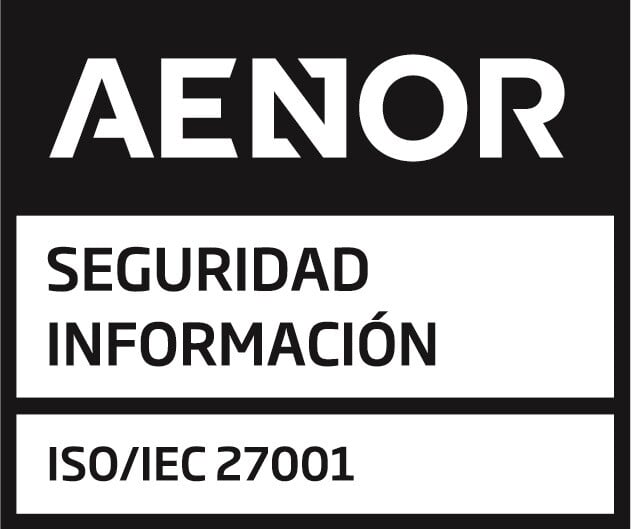Struggling with the limitations of spreadsheets when managing your renewable portfolio? You're not alone in facing this challenge.
Efficient task management is crucial in the ever-changing world of renewables, where projects require meticulous planning and flawless execution. While spreadsheets have been a conventional tool for organizing tasks, the renewable energy sector demands more tailored solutions to address its unique challenges and opportunities.
Although spreadsheets excel at data storage, they can be inflexible and prone to errors, leading to workflow challenges.
Let's explore how to navigate tasks and overcome the limitations of spreadsheets together. By leveraging specialized solutions, we can enhance collaboration, streamline operations, and achieve success in renewable energy ventures.
1. Lack of Collaboration and real-time updates.
Spreadsheets were not designed for real-time collaboration, leading to issues with version control and fragmented communication channels. This can result in confusion and inefficiencies as team members struggle to keep up with changes, especially when coordinating tasks across different time zones or locations, ultimately hindering productivity and teamwork.
However, embracing collaborative business management software can transform your workflow. These platforms empower teams to work seamlessly together, breaking down geographical barriers. With features like real-time updates and centralized communication channels, transparency is encouraged, and collaboration is greatly improved.
By breaking down silos and facilitating secure information flow across all levels of engagement, collaboration with stakeholders, including external companies like O&M providers, technical and legal advisors, financial entities, and investors, becomes effortless. This not only streamlines processes but also ensures that everyone is aligned, driving success and efficiency across the board.
2. Complexity and inflexibility.
As projects expand in size and intricacy, the challenge of managing them within spreadsheets grows more daunting. Interdependencies among tasks, resource allocations, and fluctuating timelines can easily overwhelm traditional spreadsheet systems. Additionally, the laborious process of adapting to changes or reorganizing tasks is error-prone, hindering project advancement and causing delays in deliverables.
Embracing agile project management methodologies empowers teams to navigate through complexity and transitions seamlessly. Platforms like QBi offer pivotal features such as adaptability, iterative planning, and continuous feedback. These tools enable teams to swiftly adapt to evolving requirements and deliver value incrementally, ensuring progress in a dynamic project environment.
3. Data integrity and error-prone processes.
Spreadsheets are susceptible to human errors, formula discrepancies, and accidental data deletions, compromising data integrity and decision-making processes. Without robust error-checking mechanisms or validation features, identifying and rectifying errors becomes a daunting task, consuming valuable time and resources.
Implementing data validation rules and error-checking processes can mitigate the risk of errors. Automated validation checks, error notifications, and audit trails ensure data accuracy and reliability, bolstering confidence in decision-making processes.
4. Limited reporting and analysis.
While spreadsheets excel at organizing data, they fall short in providing comprehensive insights and actionable reports. Collating data from multiple spreadsheets for analysis is time-consuming and prone to inaccuracies, hindering data-driven decision-making. Moreover, generating customized reports or visualizations requires manual effort and technical expertise, limiting accessibility to valuable insights.
By integrating business management software with advanced analytics features, businesses can unlock their data's full potential. QBi platform offers intuitive visualization tools, predictive analytics capabilities, and customizable reporting dashboards, empowering stakeholders to derive actionable insights and make strategic decisions.
Centralize all data sources impacting your business by building a centralized data warehouse.
5. Scalability and growth constraints.
Spreadsheets face challenges in keeping up with the expanding needs of businesses, leading to operational inefficiencies and communication breakdowns. Coordinating tasks across multiple teams using spreadsheets often results in disjointed workflows and a higher risk of errors. Furthermore, as businesses grow, maintaining consistency and standardization becomes increasingly difficult, hindering alignment and collaboration.
To expand your portfolio without increasing resource allocation, consider investing in scalable business management software tailored to enterprise-grade requirements. These solutions facilitate seamless collaboration and operational scalability. With robust project portfolio management capabilities, cross-functional collaboration tools, and centralized repositories, businesses can streamline workflows and effortlessly adapt to evolving demands.
6. Security and access control.
Protecting confidential information in spreadsheets can be risky due to limited access control and permissions management capabilities. Without robust encryption protocols and granular access controls, sensitive data is at risk of unauthorized access or breaches, potentially compromising organizational integrity and regulatory compliance.
Transitioning to secure task management solutions with advanced encryption protocols and access control features enhances data protection measures. By implementing role-based access permissions, sophisticated data encryption algorithms, and detailed audit trails, you can ensure data confidentiality and meet regulatory requirements, instilling trust in your data security protocols.
Impact of business management software on data and processes.
As businesses expand and evolve, the limitations of relying solely on spreadsheets for task management become increasingly apparent. To enhance efficiency, collaboration, and scalability, businesses should explore tailored solutions that meet their evolving needs. By investing in the right tools and technologies, organizations can streamline workflows, empower their teams, and achieve greater success in today's competitive landscape.
QBi emerges as the perfect ally, offering not just comprehensive business management software, but also a team of dedicated experts committed to helping you unleash the platform's full potential.
Our platform simplifies the centralization of all data and processes crucial for managing your renewable portfolio, ensuring data reliability and integrity.
With essential capabilities such as adaptability, iterative strategizing, and ongoing feedback mechanisms, QBi enables teams to quickly adjust to evolving needs and provide value in incremental steps.

